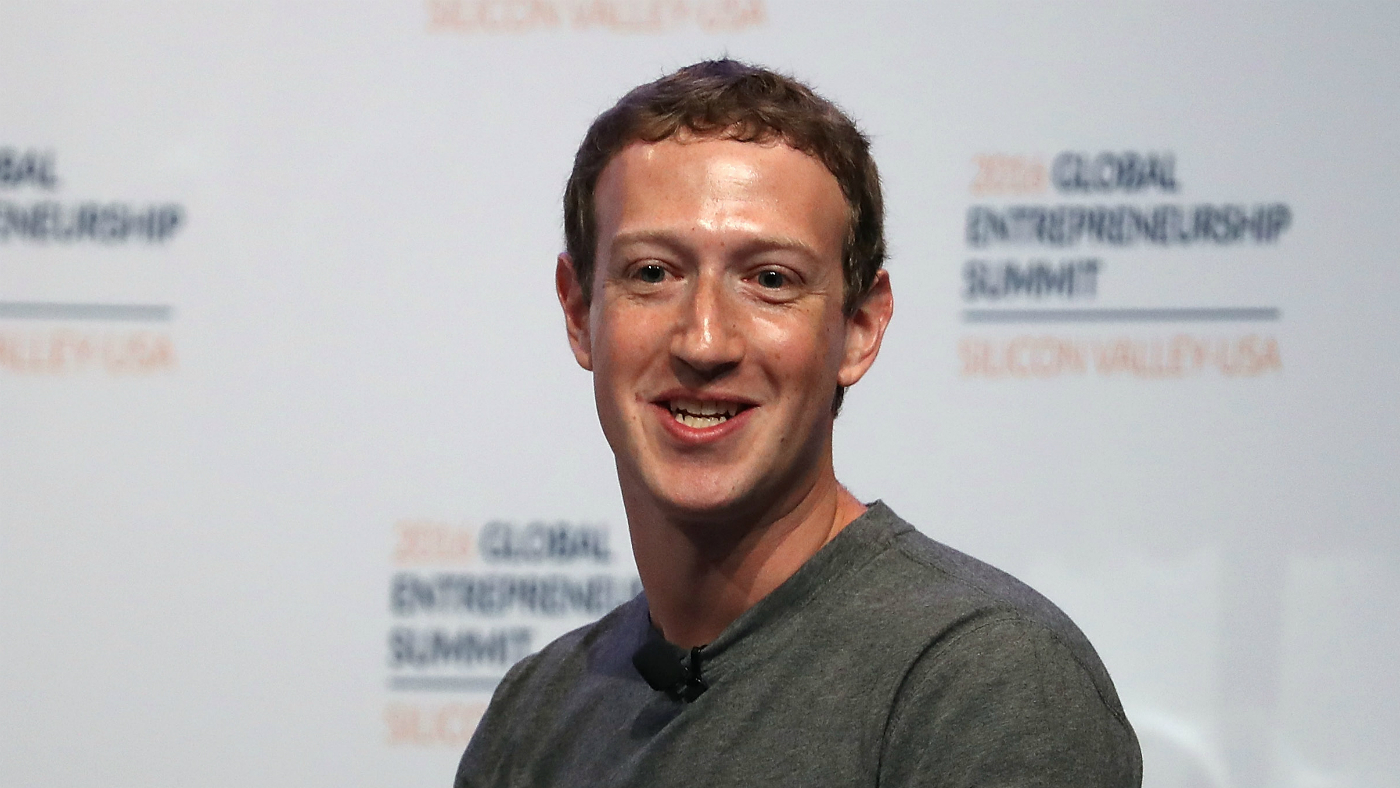Zuckerberg warns 'tide is turning against globalisation'
Facebook founder says more work is needed to 'bring communities together' as he releases 5,800-word manifesto on 'connecting the world'

A free daily email with the biggest news stories of the day – and the best features from TheWeek.com
You are now subscribed
Your newsletter sign-up was successful
Facebook founder Mark Zuckerberg has issued a warning that "the tide is turning against globalisation", says the BBC.
The billionaire social media pioneer said in a recent interview that some people had been left behind by global growth and were seeking to "withdraw" from the "connected world".
Zuckerberg made the comments on the day he also published a 5,800-word manifesto that has "sparked further speculation about a future political career", says the Daily Telegraph.
The Week
Escape your echo chamber. Get the facts behind the news, plus analysis from multiple perspectives.

Sign up for The Week's Free Newsletters
From our morning news briefing to a weekly Good News Newsletter, get the best of The Week delivered directly to your inbox.
From our morning news briefing to a weekly Good News Newsletter, get the best of The Week delivered directly to your inbox.
Rumours, consistently denied by Zuckerberg himself, have circulated for some time that he is intending to embark on a run for president in 2020.
In the manifesto Zuckerberg says he still strongly believes in "connecting the world", but acknowledges that global growth has not been spread equally.
He adds it is "not enough if it's good for some people but it doesn't work for other people".
Zuckerberg cites the demise of traditional – and physical – social communities, such as churches, labour unions and local community groups. But he says social media such as Facebook could help to fill the gap.
A free daily email with the biggest news stories of the day – and the best features from TheWeek.com
"In times like these the most important thing we at Facebook can do is develop the social infrastructure to give people the power to build a global community that works for all of us."
He added that social media had at times been part of the problem and that "fake news, polarised views and 'filter bubbles' [are] damaging 'common understanding'", says the BBC.
Addressing the topic of fake news, which some say played a key role in the recent election of Donald Trump, Zuckerberg said: "We are proceeding carefully because there is not always a clear line between hoaxes, satire and opinion.
"Our approach will focus less on banning misinformation, and more on surfacing additional perspectives and information, including that fact checkers dispute an item's accuracy."
As for the rumours that he's harbouring political ambitions, Zuckerberg isn't giving anything away.
"I am not doing that now, it's not the plan," he said. "The thing I really care about is connecting the world."
-
 Crisis in Cuba: a ‘golden opportunity’ for Washington?
Crisis in Cuba: a ‘golden opportunity’ for Washington?Talking Point The Trump administration is applying the pressure, and with Latin America swinging to the right, Havana is becoming more ‘politically isolated’
-
 5 thoroughly redacted cartoons about Pam Bondi protecting predators
5 thoroughly redacted cartoons about Pam Bondi protecting predatorsCartoons Artists take on the real victim, types of protection, and more
-
 Palestine Action and the trouble with defining terrorism
Palestine Action and the trouble with defining terrorismIn the Spotlight The issues with proscribing the group ‘became apparent as soon as the police began putting it into practice’
-
 Labour shortages: the ‘most urgent problem’ facing the UK economy right now
Labour shortages: the ‘most urgent problem’ facing the UK economy right nowSpeed Read Britain is currently in the grip of an ‘employment crisis’
-
 Will the energy war hurt Europe more than Russia?
Will the energy war hurt Europe more than Russia?Speed Read European Commission proposes a total ban on Russian oil
-
 Will Elon Musk manage to take over Twitter?
Will Elon Musk manage to take over Twitter?Speed Read The world’s richest man has launched a hostile takeover bid worth $43bn
-
 Shoppers urged not to buy into dodgy Black Friday deals
Shoppers urged not to buy into dodgy Black Friday dealsSpeed Read Consumer watchdog says better prices can be had on most of the so-called bargain offers
-
 Ryanair: readying for departure from London
Ryanair: readying for departure from LondonSpeed Read Plans to delist Ryanair from the London Stock Exchange could spell ‘another blow’ to the ‘dwindling’ London market
-
 Out of fashion: Asos ‘curse’ has struck again
Out of fashion: Asos ‘curse’ has struck againSpeed Read Share price tumbles following the departure of CEO Nick Beighton
-
 Universal Music’s blockbuster listing: don’t stop me now…
Universal Music’s blockbuster listing: don’t stop me now…Speed Read Investors are betting heavily that the ‘boom in music streaming’, which has transformed Universal’s fortunes, ‘still has a long way to go’
-
 EasyJet/Wizz: battle for air supremacy
EasyJet/Wizz: battle for air supremacySpeed Read ‘Wizz’s cheeky takeover bid will have come as a blow to the corporate ego’